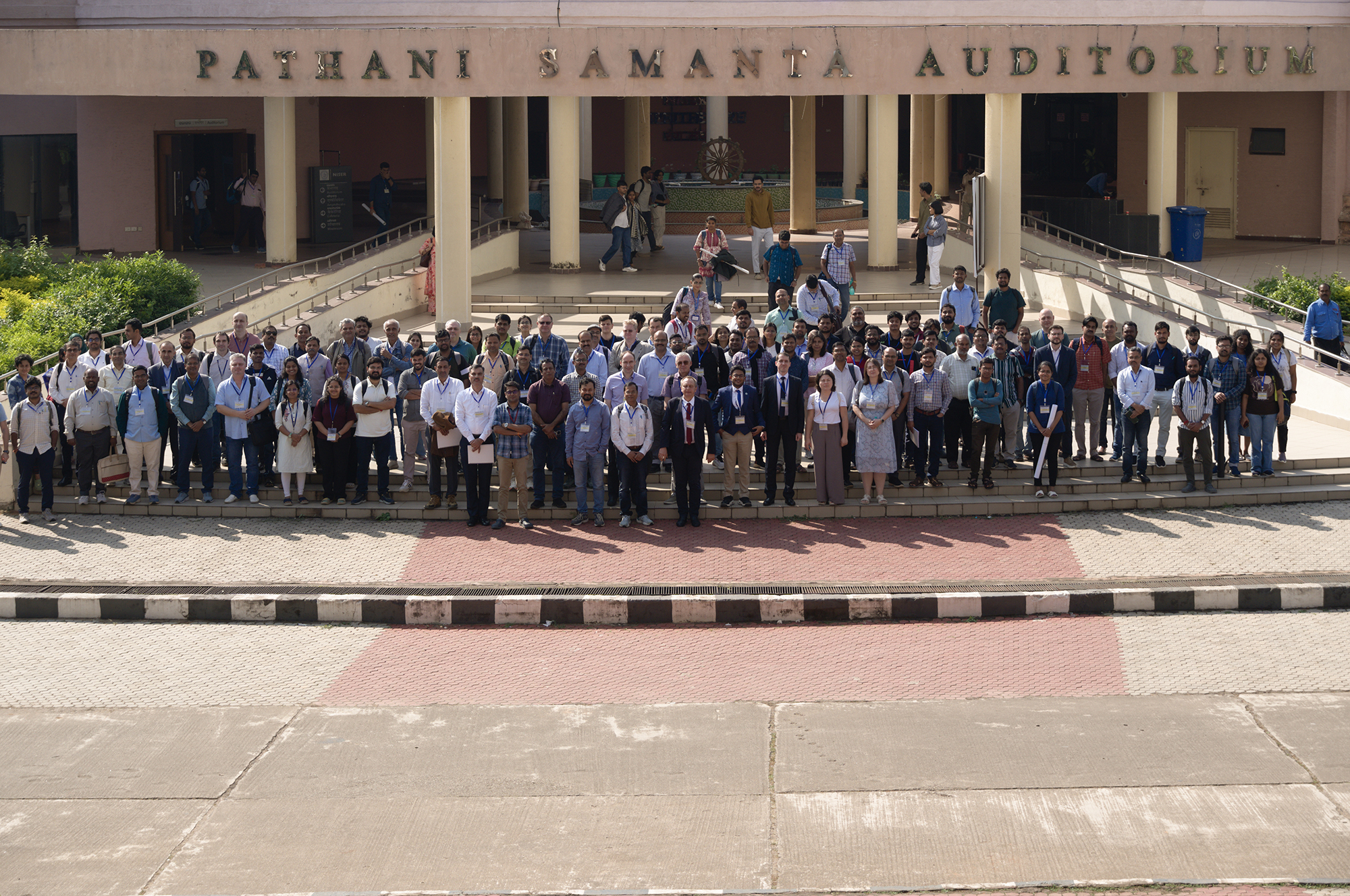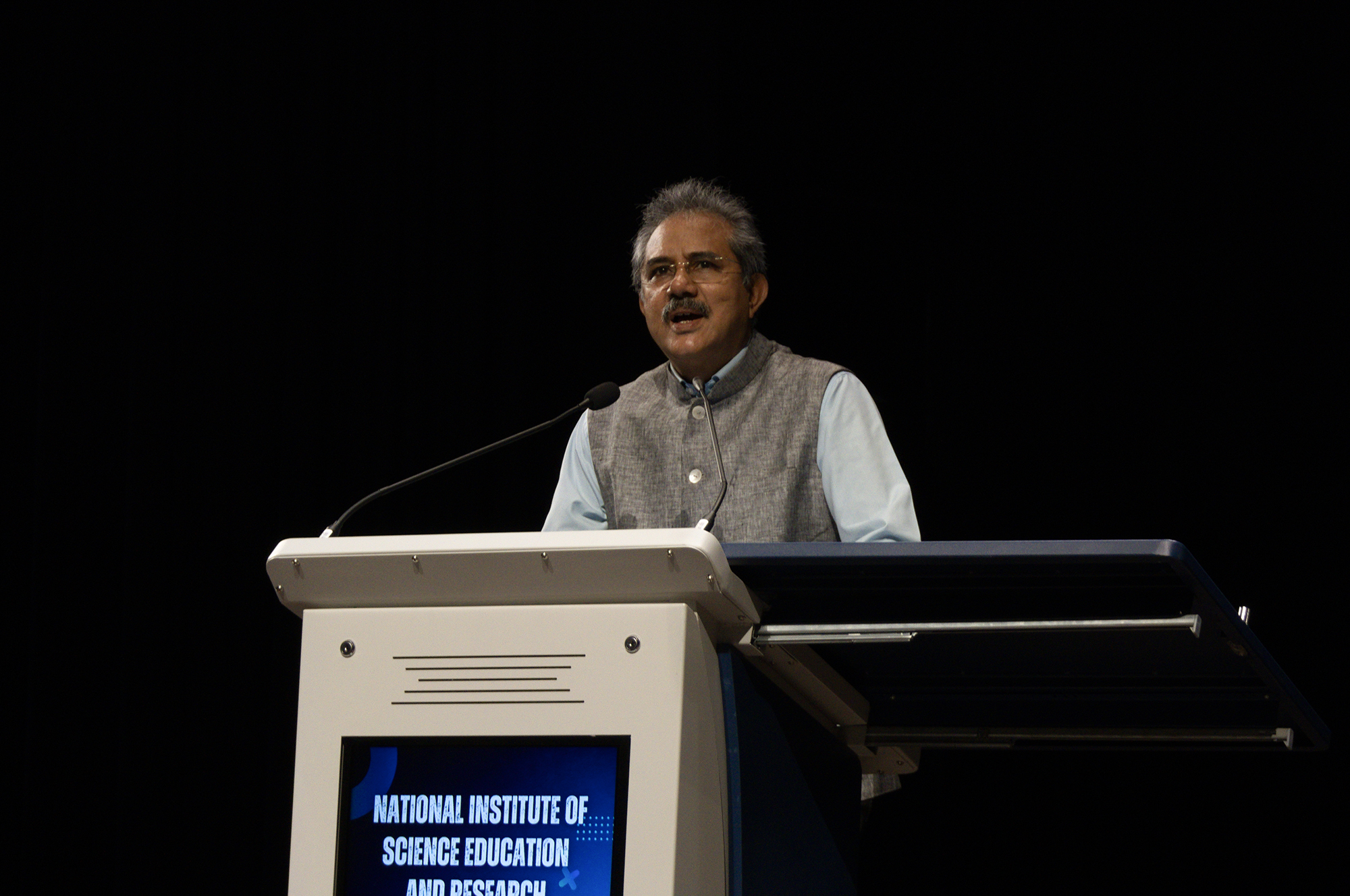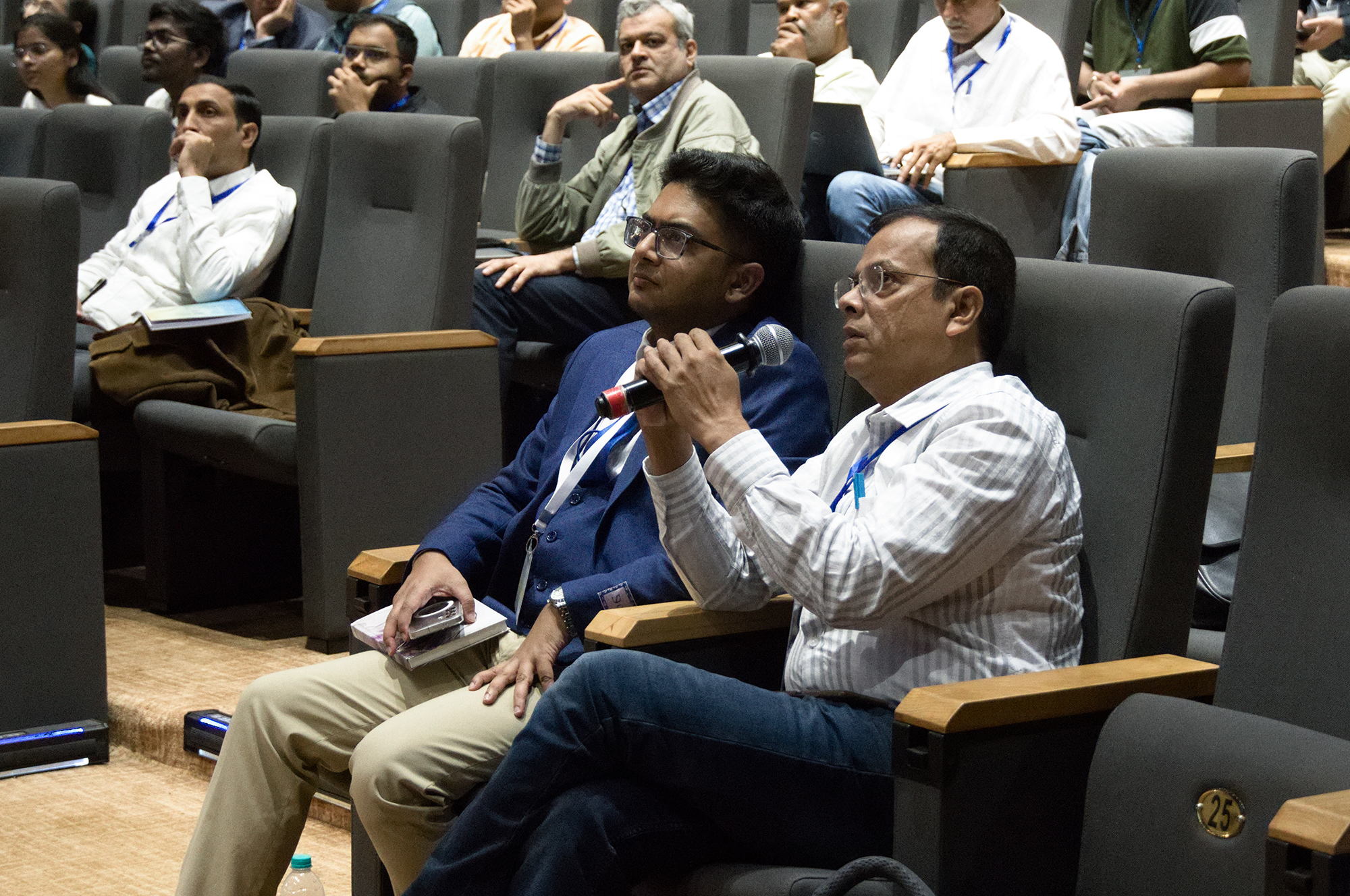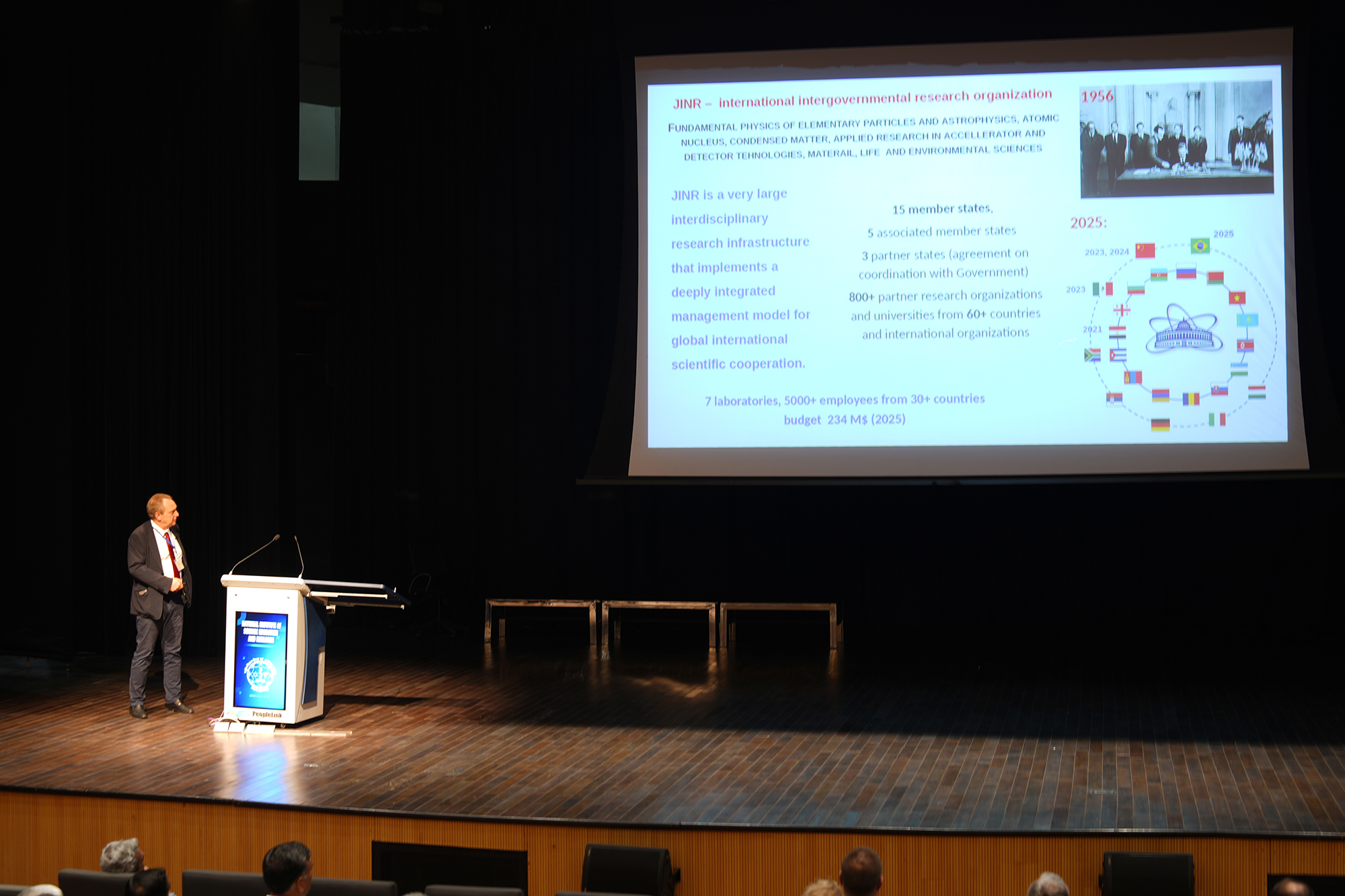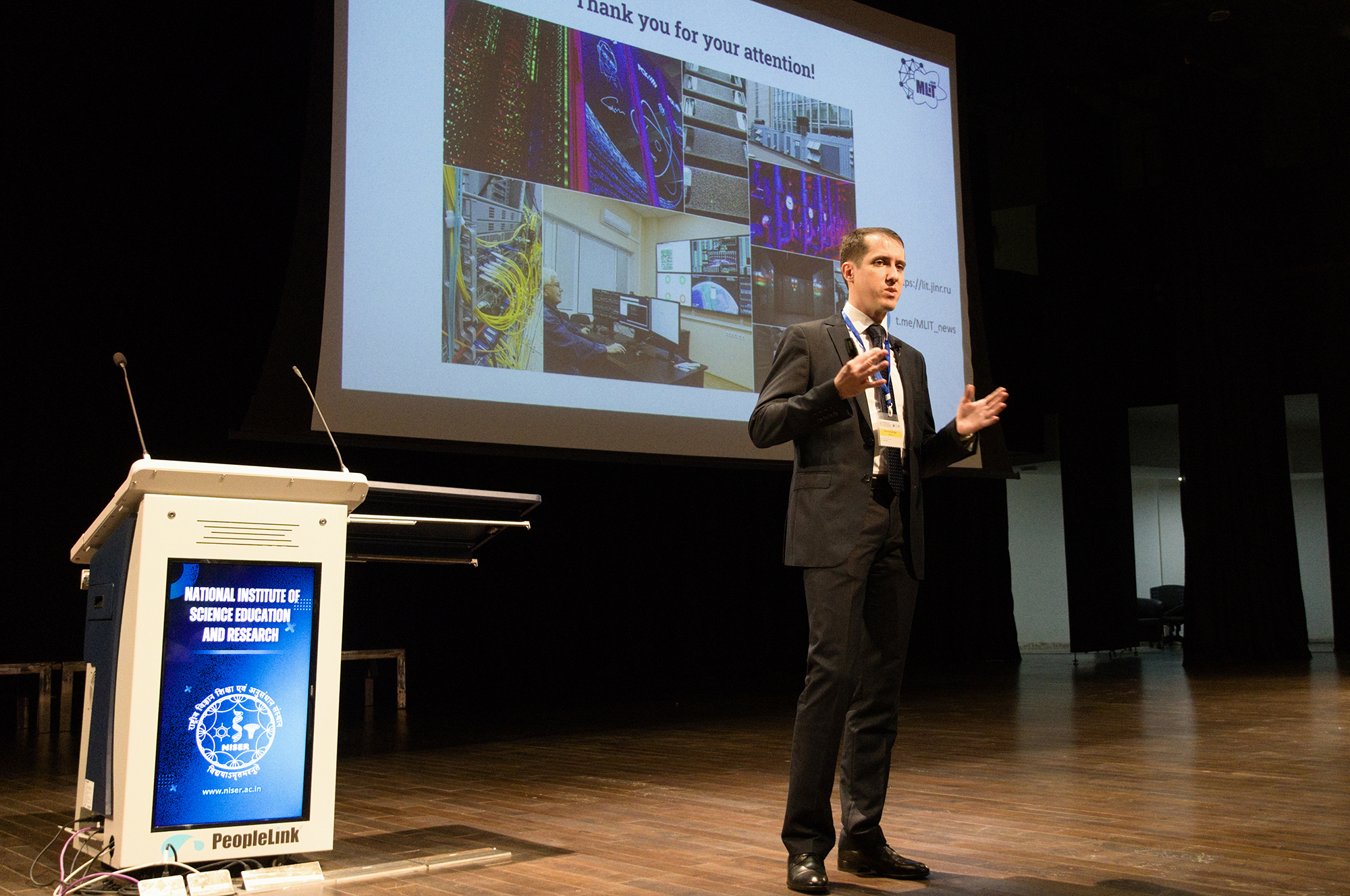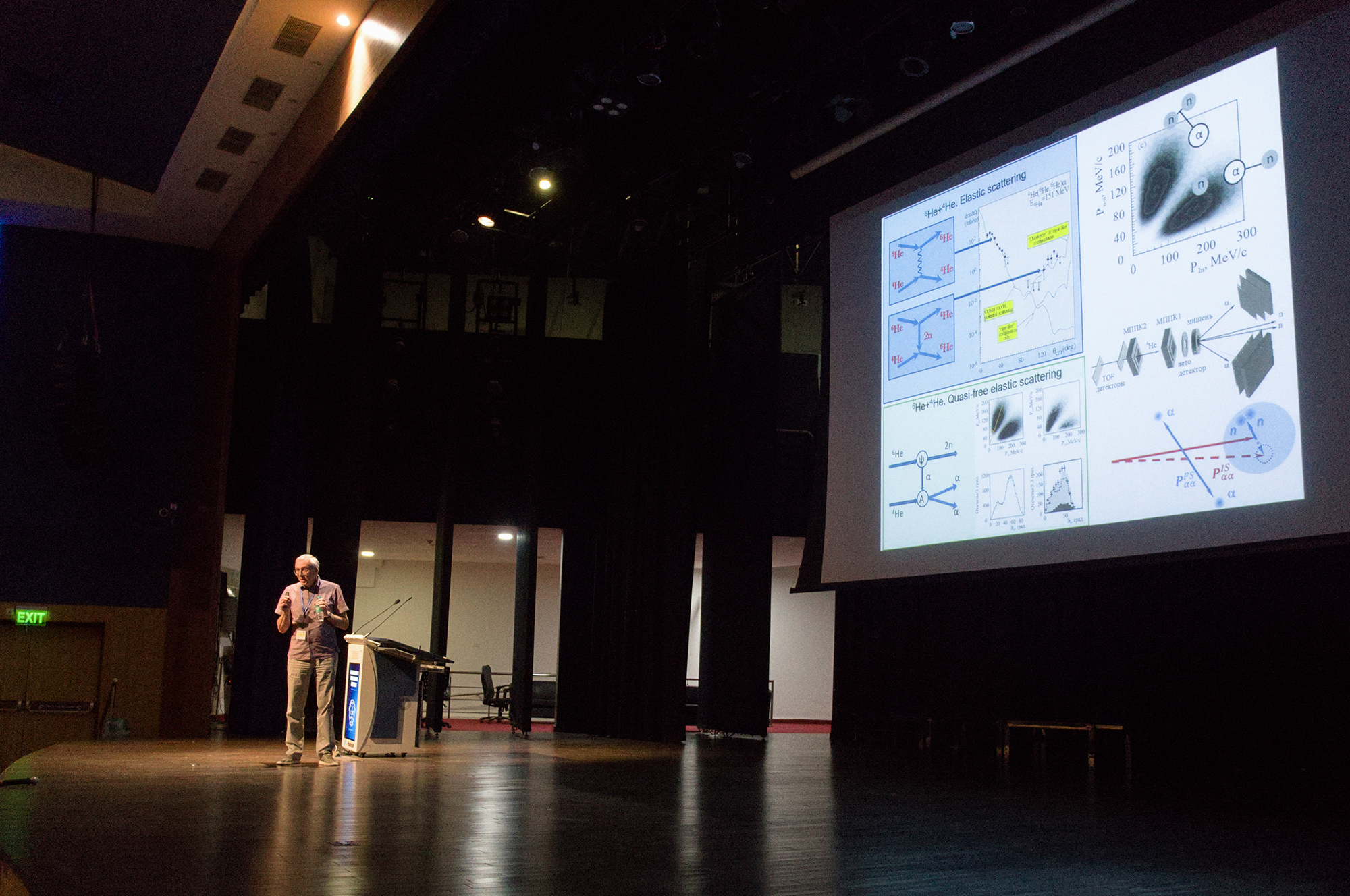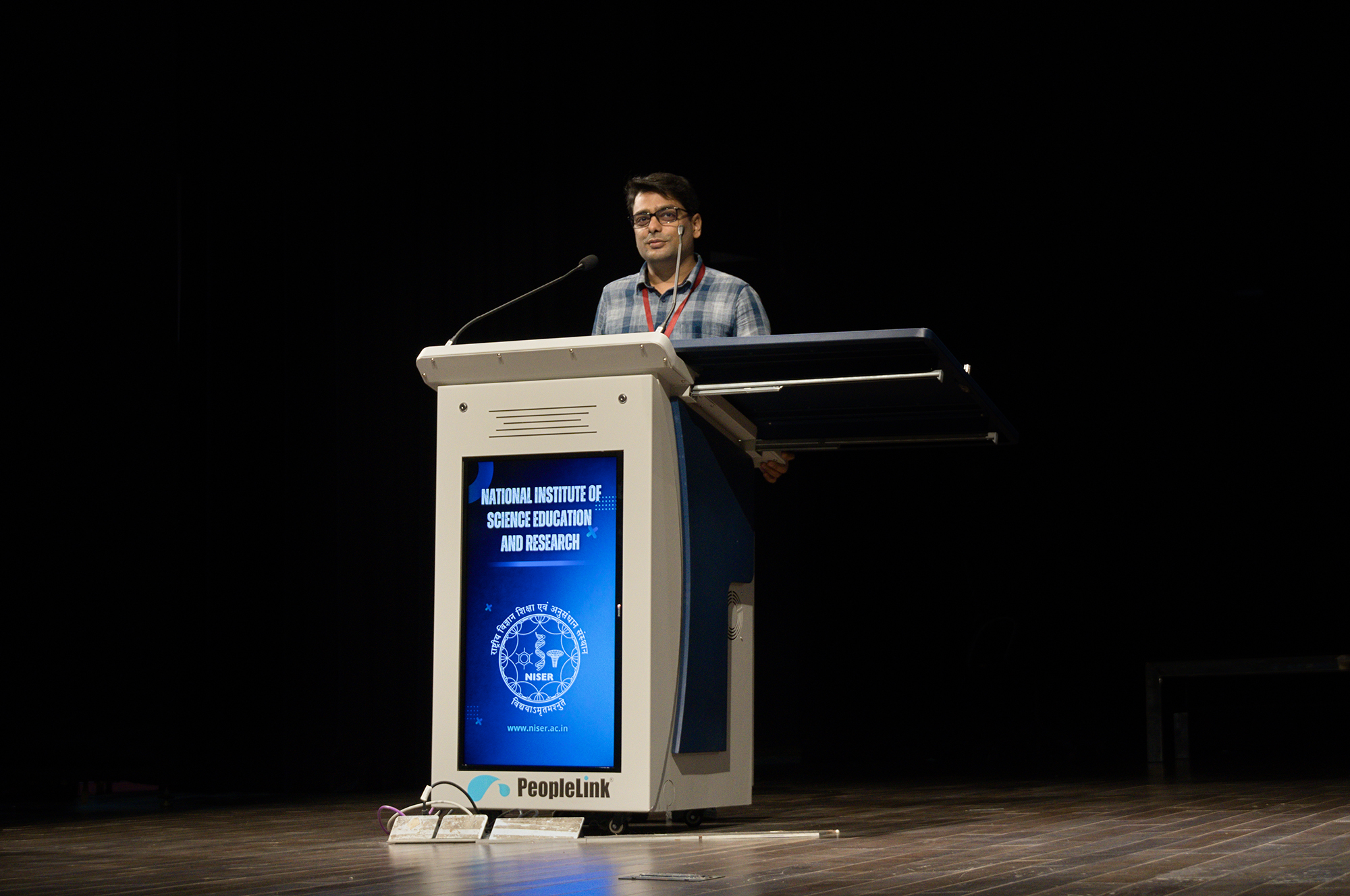India-JINR workshop took place in Bhubaneswar
News, 14 November 2025
On 10–12 November 2025, the National Institute of Science Education and Research (NISER) in Bhubaneswar hosted the India-JINR Workshop on Particle, Nuclear, Neutrino Physics and Astrophysics with over 200 participants. The event followed the inaugural India-JINR workshop held in Dubna in October 2023 and was focused on deepening the successful cooperation between scientists from the Joint Institute for Nuclear Research and Indian institutes and universities.
In his opening speech, Professor Hirendra Nath Ghosh, Director of NISER, welcomed the workshop participants and underlined the crucial role of international collaboration for the development of science and technologies.
Twenty-three plenary talks were given during the event, covering nuclear physics and astrophysics, hadron physics, particle physics, neutrino physics, high-energy nuclear physics, etc.
Chief scientific secretary of JINR, Sergey Nedelko, made a presentation on JINR’s large scientific infrastructure and development prospects as an international intergovernmental research organization. Leading scientists of the Joint Institute and spokespersons of main JINR’s collaborations presented large-scale research projects of the Institute, including the MPD (Victor Riabov), SPD (Alexei Guskov), and BM@N (Sergei Merts) experiments at NICA, the Superheavy Element Factory and DRIBs-III Project (Sergey Sidorchuk and Alexander Karpov), the Baikal-GVD Neutrino Observatory (Bair Shaibonov), lattice QCD studies (Victor Braguta), and much more.
At the plenary sessions, Indian colleagues provided a wide overview on the major institutes and experimental facilities of India such as Bhabha Atomic Research Centre (BARC), Inter-University Accelerator Centre (IUAC), Tata Institute of Fundamental Research (TIFR), Variable Energy Cyclotron Centre (VECC), Saha Institute of Nuclear Physics (SINP), NISER, etc.
In addition, JINR delegates and researchers from various Indian institutes delivered 48 talks at three parallel sessions on each day of the workshop. Furthermore, 54 PhD students from India were shortlisted to showcase their studies in the form of posters and join in fruitful discussions on prospects of collaborative scientific activities.
A detailed discussion was carried out on the development of a programme level cooperation between the Joint Institute and Indian research organizations. The JINR representatives shared a detailed presentation on the Institute’s strategy for scientific and infrastructure development for the upcoming years, during which opportunities for the involvement of Indian specialists was explored. The discussion facilitated a better understanding among specific Indian research groups of potential connections with the relevant JINR counterparts.
Photo © NISER
